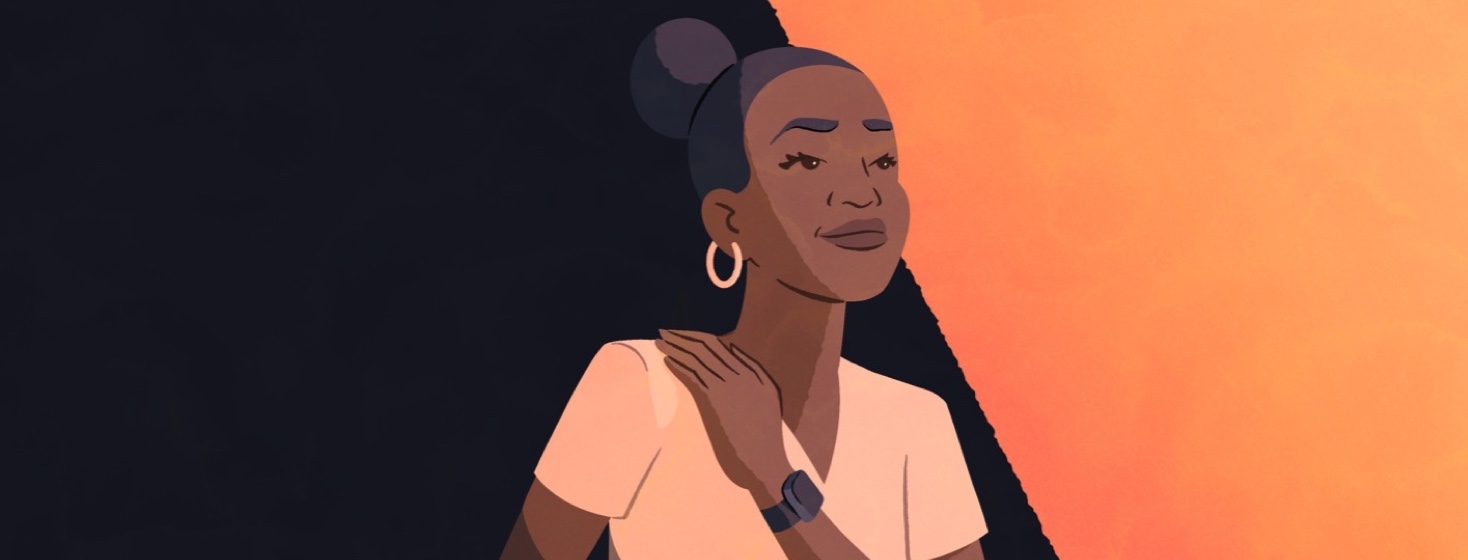Learning to Cope With Survivor’s Guilt
Once upon a time, a warrior said to me "I'm sure after your transplant you'll turn your back on the sickle cell community." I was honestly speechless! What was so disheartening about that statement was the word choice: I'm sure. It expressed with so much certainty like my presumed action was a matter of fact.
How could I walk away from a diagnosis that left my world fragmented and informed my life choices? It's impossible to renounce advocacy, given my tumultuous relationship with sickle cell; it's like asking a widow who was married for 32 years to never reference her late husband. It's simply a futile task.
Fallen angels
In the last decade, the global sickle cell disease (SCD) community has lost trailblazing advocates: Hertz Nazaire, Jewel Darbone, Jazmine Riviera, Jennifer Nsenkyire, Albert Johnson (Prodigy) of the HipHop Duo Mobb Deep, and Dr. Ohene-Frempong, to name a few. Every time a warrior earns their wings, the loss has a profound impact on the patient community.
According to a report by the National Institute of Health (NIH), sickle cell disease leads to a chronic inflammatory state through episodic vaso-occlusive crises. These crises cause ischemia, pain, and organ damage complications over time. Management of complications and life expectancy in adults has improved moderately, but it is still challenging. Currently, the life expectancy for adult individuals with sickle cell disease is 54 years. This mortality rate breaks my heart every time.1
As a patient leader, I proudly take on the responsibility of raising awareness for sickle cell disease. Because these advocates walked, a #SickleCellProdigy like me can run.
What is survivor's guilt?
Survivors’ guilt typically arises in people who have been exposed to, or witnessed, death and have stayed alive. As someone who survived an allogeneic stem cell transplant that others did not, I have privately dealt with intense feelings of guilt. Sometimes I wonder if the guilt is exacerbated by traumatic experiences in childhood and confrontations with death.
Survivor's guilt is a commonly-used term in both clinical descriptions and everyday language. It has been identified in a range of trauma-exposed populations, often linked to more severe post-traumatic mental health disorders. Common symptoms include fear, irritability, anger, social isolation, headaches, insomnia, lack of motivation, helplessness, and possible flashbacks of the trauma-inducing event. Many of the transplant recipients I've met all report experiencing different variations of symptoms.
In a 2018 article assessing the effectiveness of cognitive therapy on survivors, individuals commonly reported a sense of wanting to repair or make amends in some way for surviving. However, few had found a means to do so. I, for one, hated the constant battle to make sense of my survival. I intentionally sought out advocacy opportunities to resolve these feelings of guilt.2
Coping with sickle cell survivor's guilt
Finding ways to cope with survivor's guilt didn't come easy at first but playing a game of shoulda, woulda, coulda didn't help either. I resorted to faith-based practices hoping to pray the guilt away, but that was unsuccessful. So, I sought counsel from the World Wide Web.
How to carry on
- Accepting and allowing the feelings to surface- Suppressing my thoughts and emotions led to more physical stress on my body, which was less desirable on my journey to recovery. Wanting to move forward, I took some time to process the guilt, grief, and loss I felt post-transplant with guidance from my therapist. I had to understand that survivor's guilt isn't always rational; it is simply a recognized response to trauma.
Sharing and connecting- I never quite understood support groups. Call me judgmental, but it just felt a little ridiculous to sit in a group and trade life stories with strangers. Whatever happened to friends and family, I thought?
The truth is for a long time the only person who knew I struggled with guilt was the therapist. I chose to dissimulate around loved ones, because sharing feelings of guilt felt unimportant and a little vain. Today, I've made connections with many transplant survivors. Knowing I'm not alone has been so rewarding.
Doing something good for others- Advocacy has helped me turn my pain into purpose. Frankly speaking, today's healthcare system is fragmented, so living with SCD could mean seeing multiple specialists to help manage complications of the disease.
Healthcare advocacy gives me an opportunity to educate patients so they can make informed decisions on their care. In the SCD community, we've seen how advocacy influences public policy by guiding lawmakers and leaders to improve community health and address health disparities. I want to be a part of that movement. For me, it's been the best way to leave an impact and create a legacy.

Join the conversation